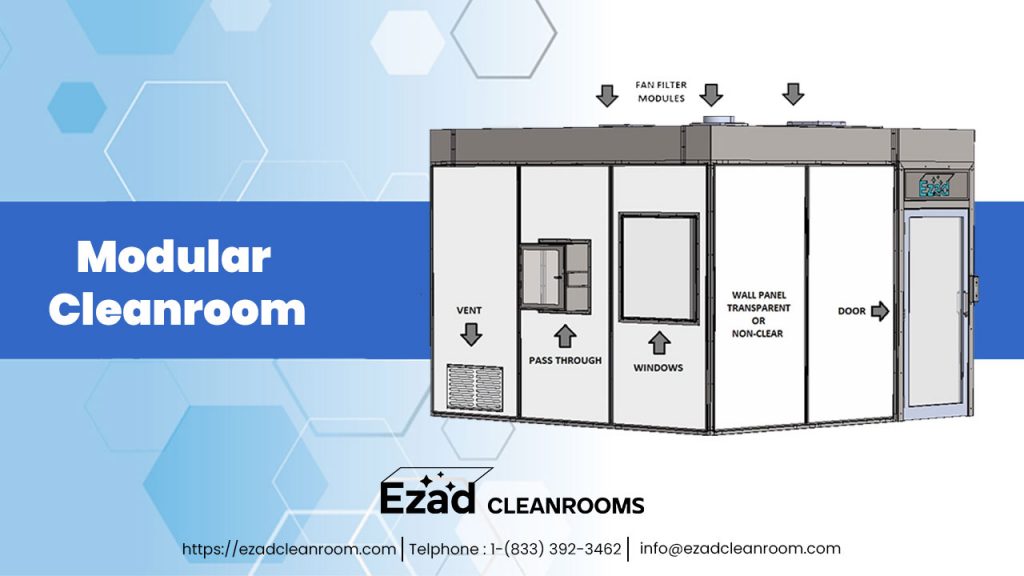Laboratory Modular Cleanroom Filteration

A laboratory cleanroom is a significant place for the researchers as this place is used to maintain the quality measures given by the ISO. There are various types of clean rooms, ie. Soft wall clean room, hard wall clean room, and modulated clean room. The primary factor which is responsible for the laboratories is the material that is used to make it. In this further, we will discuss the filtration, which is done with the help of the Modular Cleanroom Filteration.
Pre Filteration
These are the filters used to remove the particles in the room in collaboration with the HEPA filters. This combination helps to maintain the quality of the air for a more extended period of time. Pre-filters are highly recommended to be changed at least six times a year to get the work done very efficiently and to increase the efficiency of the machine.
HEPA Filters
High-efficiency particulate air filter plays a vital role in the maintenance of the air quality control. There are various types of HEPA filters present, and this depends upon the type of cleanroom in which the HEPA filters need to be used. The filters should be changed after a limited period so as to get the desired functions. For the laboratories, medical industries, etc., these filters need to be changed after every five years.
Features Of the HEPA Filters

Removes Micron Particles of the size 0.3 microns or may be larger in size.
Air Velocity of 90 fpm.
Airflow of the 650 cfm.
Ninety-nine percent of the operating efficiency.
Total clean air supplies of the filters can be used for 10 years if used correctly. But there are some terms and conditions that are it is being restricted to some particular temperature.
ULPA Filters
The ultra-flow air filters remove most of the pollen grains, dust, etc., of the size 100 microns or larger. These filters are recommended at the place where there is a requirement for immaculate air. ULPA filters are highly efficient in the protection of the product from contamination. So companies protect the money for a long time, and they invest money in better products that are highly efficient and can be used for a long time.
When we compare the HEPA filter with the ULPA filter, there is definitely no choice other than that of the ULPA filters as it filters out more particles as compared to that of the HEPA filters.
Industries using HEPA filters are:
Food processing
Hospitals
Laboratories
Nuclear research lab
Microelectronics
Pharmaceuticals.
Both HEPA and ULPA filters are very highly modified filters that are required to be doing the fittings in the presence of a known person or a very highly skilled person. These are constructed in the ceilings of the rooms.
Method of Air Filteration

Initially, the air is cooled, heated, dehumidified, or humidified by the HVAC system before entering the cleanroom and passing through the HEPA filters to remove the particles. This is the method which widely used in the purification of the air in the labs by the HEPA filters.
These filters are required to be used accordingly and for an extended period of time so that their life should be increased.
As the filters are very costly and these need to be used for an extended period of time, so these to be used accordingly. There are different companies that give the filters with their guarantee of shelf life. The shelf life is based upon the company.
Conclusion
There is a need for filters in the laboratories as these are used to maintain the quality control of the labs. There are two filters which we have discussed earlier, ie. HEPA filter and the ULPA filter. The most efficient one in both of them is the ULPA filters, as it traps more contaminants as compared to the HEPA filters. These filters play a significant role in quality control in laboratories.
If the person wants to get the laboratory for a long time and wants to get the accurate results of the research, then he should go for the ULPA filters. Even the most effective businessman saves more money to a more efficient filter, ie. The ULPA filter, as compared to the HEPA filter, traps more air-borne particles and the contaminants present in the air.
Even the ULPA filter traps the particles with petite particle sizes, whereas HEPA filters trap the particles with a large particle size of about 0.3 microns or more. This is very important for the new company and that thing is majorly responsible for the growth of the company as this will less contaminate the substance, and the product can be with the more purity.




